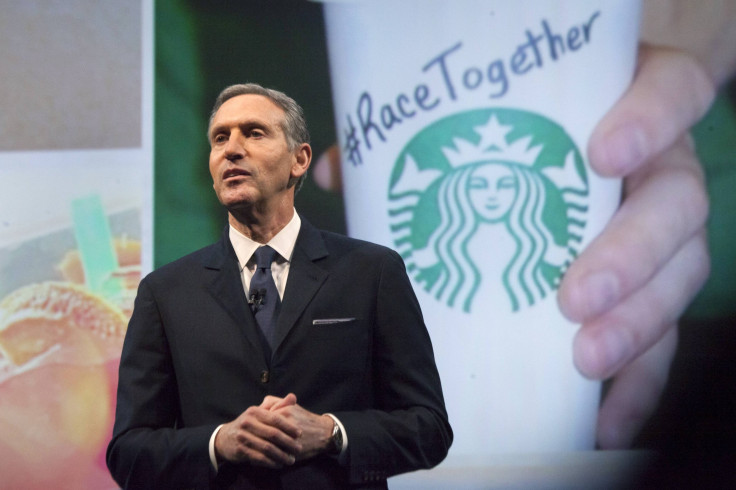Starbucks 'Race Together': How It Could Have Been Better

Starbucks CEO Howard Schultz announced in a memo to Starbucks employees on Sunday that the chain was ending its much-criticized Race Together campaign -- or at least the phase that encouraged baristas to write "Race Together" on coffee cups to initiate race conversations with customers. The initiative was originally announced March 16. Although the company was charged with being hubristic, clueless, insensitive and exploitative by many, some have lauded Starbucks for attempting the conversation at all.
The coffee chain's stocks hit a 52-week high amid the media pummeling, so you could argue that the campaign didn't hurt Starbucks. But from a PR perspective, was "Race Together" a giant fail? Could there have been any way for a corporation to tackle race in a marketing campaign or "initiative" -- and succeed?
"There is a place for experts to come in and shepherd a conversation about race," said Monique Nelson, Chair and CEO of UniWorld Group, a 47-year-old multicultural marketing and advertising firm, who said that Starbucks had the opportunity for an authentic and organic campaign. It's especially timely, she said, in a "majority minority America" with its "Fergusons, Staten Islands and Oklahomas."
She added, "The great thing about Starbucks is they’re already in the community. They’re already bringing in people of different ethnicities and races, depending where they are in the country. I would ask, How do we make Starbucks the safe space for the race conversation? They don’t necessarily have to lead the conversation. But they could be the destination for it."
In addition to her critique that Starbucks attempted to lead a conversation it probably should not have been leading, Nelson saw other problems with the campaign. They didn't seem to have what she called "rules of engagement" before the rollout -- employee training, a clear goal beyond "starting a conversation about race," and enough preliminary engagement with community leaders.
Her statements echo those of Jennifer Epps-Addison, executive director of nonprofit labor rights organization Wisconsin Jobs Now, who told IBTimes she had several RXs for Starbucks: Have an independent agency "rather than someone that reports to and is loyal to corporate" to work with focus groups with workers from various geographies and types of stores (i.e., urban and suburban)"; provide a survey or questionnaire the employees could fill out anonymously; to have an open call throughout their stores for participants in a long-term planning committee, and a vote by workers on who would represent them.
"To just put an edict out: 'Have a conversation about race,' " said Nelson, "is not a good format in terms of execution. I’m sure they wanted to have an organic conversation and said, 'Let's not prescribe this too much.' But this is something that needs to be super prescribed." Nelson said Race Together had the potential to alienate not only workers but also customers.
"I’m sure somebody said, 'I’m not going back to Starbucks. I don’t want to have that conversation,' " she surmised.
"Although there's been a lot of negative criticism, I'm not sure that I feel that this has failed yet," said Eli Portnoy of cultural branding agency CultureRanch. "And it depends how you measure failure. It's getting a ton of free press, and if this conversation opens up for more detailed conversations elsewhere, then they probably will think it was successful."
When asked if Starbucks had any response to the media criticsm, Starbucks' SVP for Global Communications Corey duBrowa responded through his spokesperson Laurel Harper. She told IBTimes, "No. We are not straying from what we set out to do...[We] couldn’t remain silent on an issue that is troubling the hearts and minds of many in America. We don’t have all of the solutions, but doing nothing makes us part of the problem."
Per Schultz's memo to Starbucks employees on how Race Together was moving on to other phases, Harper elaborated on the plan to expand Starbucks' "store footprint in urban communities around the country" by responding, "We are planning to open a net of 300 stores in the U.S. in FY15, many of which will be in urban neighborhoods," and "[L]ast week we committed to hire at least 10,000 disengaged youth over the next three years."
I applaud @Starbucks for attempting to start a dialogue with #RaceTogether. The scale of the attempt alone is worth praise.
- Antonio French (@AntonioFrench) March 21, 2015© Copyright IBTimes 2024. All rights reserved.












